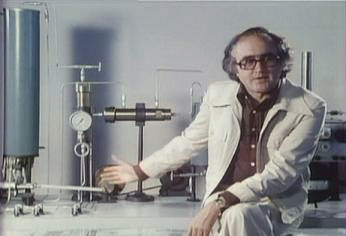
 James Burke is a unique historian of science and progress and his series Connections remains one of the best series about scientific and technological change. Having discovered this series during the early 1990s, I was amazed by Burke’s concluding remarks. Words that ring true today more than ever.
James Burke is a unique historian of science and progress and his series Connections remains one of the best series about scientific and technological change. Having discovered this series during the early 1990s, I was amazed by Burke’s concluding remarks. Words that ring true today more than ever.
“So, in the end, have we learned anything from this look at why the world turned out the way it is, that’s of any use to us in our future? Something I think, that the key to why things change is the key to everything. How easy is it for knowledge to spread. And that in the past the people who made change happen where the ones who had that knowledge, wether they were craftsmen or kings.
“Today, the people who make things change, the people who have that knowledge, are the scientists and technologists who are the true driving force of humanity.
“And before you say what about the Beethovens and Michaelangelos, let me suggest something with which you may disagree violently, that at best, the products of human emotion: art, philosophy, politics, music, literature, are interpretations of the world. They tell you more about the guy who’s talking that about the world he’s talking about. Second hand views of the world, make third hand by your interpretation of them. Things like that … [Flips through paintings from the Mona Lisa to the Middle Ages]
As opposed to this [image of crystals through a microscope]. Know what this is? It’s a bunch of amino acids, Stuff that goes into building a worm, geraniums or you. This stuff’s easier to take [art], understandable. Got people in it. This scientific knowledge is hard to take, because it removes the reassuring crutches of opinion, ideology and leaves only what is demonstrably true about the world.” – James Burke, Connections, 1978, Episode 10, Yesterday, Tomorrow and You.
I encourage all who have an interest in science and progress, however remote, to watch this series. If you do disagree deeply with Burke’s position that the only true agents of progress and change are scientists and technologists, you might wish to watch the entire series to get a better grasp of the contributions of these fields of knowledge to our everyday existence.
Knowing how much science and technology has done for us will not and should take away your appreciation for Chostakovich, Dali or Pushkin. It will however, better protect you from weak ideologies, relativism and pseudo-science.
More about James Burke and the Connection series

Leave a Reply